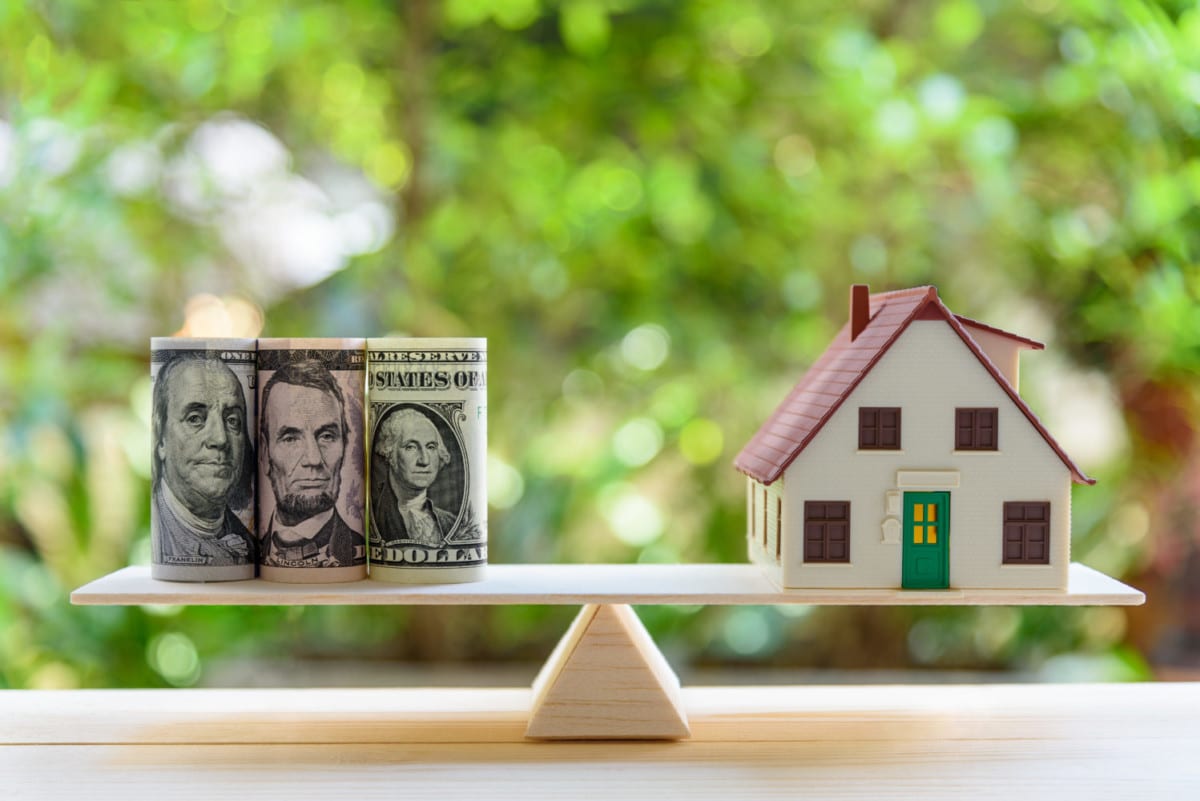You’ll often hear that homeownership builds wealth. Usually what people mean by that is owning a home builds equity. Equity is a term that refers to how much of your home you actually own. Anyone who takes out a mortgage will need to make a down payment. How much of a down payment you make impacts how much equity you start with. As you pay down your mortgage, you’ll build more equity until the day arrives when your mortgage is paid off and you own 100% of your home. But that’s not all there is to home equity. You can also borrow against it through an equity loan. Let’s take a closer look at home equity and how homeowners can use it to their advantage.
How Home Equity Works
Said another way, home equity is the appraised value of your home minus your remaining mortgage balance. Any increase in your equity is a good thing. There are only two ways to do that. The first is by paying down the principal on your mortgage. It’s a bit like a forced savings account. As your equity builds, you’re locking up more money in your home which you can’t access unless you sell or take out an equity loan.
The second way is to build your equity through any climb in price appreciation. However, this can be a slow climb. From 1997 to 2017, U.S. residential year-over-year price appreciation only averaged 1.89% when adjusted for inflation. Be that as it may, that’s still something you won’t get with any other asset purchased with a loan. A vehicle loses value as it’s paid off. A home builds value as it’s paid off.
As mentioned, your equity can also be used as a line of credit. This can provide easy access to cash if you wish to make renovations or have to make sudden repairs. For example, if you have a $300,000 home and $200,000 left on the mortgage then you have $100,000 in equity. But don’t think you can just go to the bank and easily walk out with a $100,000 loan. Depending on your credit and other factors you’ll only be allowed to take out a percentage of your equity. You’ll also have two types of equity loans to choose from, a home equity loan, or a home equity line of credit (HELOC).
Home Equity Line of Credit (HELOC)
A HELOC is a line of credit that usually worth up to 85% of the value of your home, minus the remaining mortgage. In the example above, that’s $55,000 (85% of $300,000 – $200,000). You can use this money for just about anything, but it’s best used as funding for renovations that will raise the market value of your home. HELOC’s are a bit like a credit card with an extended draw period. You can delay repayments and borrow as much or as little as you need just like a credit card. You can then pay this back either monthly or in lump sums. For homeowners undertaking multiple renovation projects with different timelines, a HELOC is the best fit for your needs.
However, the downside to HELOC’s is that the interest rate is variable. This means your monthly repayments in the future can be higher than they initially were. How much the interest rate varies depends on several factors such as decisions by the Federal Reserve, the banking industry, and investor demand for bonds and treasury notes. There are also two types of HELOCs. One with an interest-only draw period and one with a draw period in which you pay interest and principal.
Home Equity Loan
Through a home equity loan, a homeowner can receive a lump sum at a fixed interest rate.
They’re often called a second mortgage, as you’ll be putting your home up as collateral. The loan term is typically five to 20 years with the amount you can borrow limited to 80% of your home equity. They’re most often used to make renovations, pay college tuition, or pay off credit cards with high-interest rates. However, not many lenders offer them as the HELOC has always been the dominant product.
How to Make Best Use of Your Home Equity
Home equity can be your ticket to upscaling to a new home. If you choose to sell, then that equity you’ve built up will become cash after the sale. That cash can then be used to make a down payment on a new home. Alternatively, you can take out a home equity loan or HELOC once your equity has reached a certain point. This can then be used to make those renovations you’ve always dreamed of or fund your retirement.
However, before taking out an equity loan you need to understand the risks. If you can’t make your repayments, then you could lose your house to foreclosure. Before deciding on anything, make sure you talk with a financial advisor on how you can make the best use of your equity.

